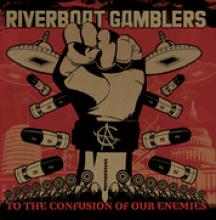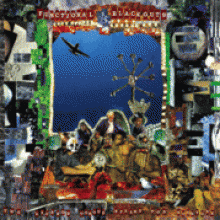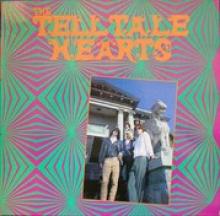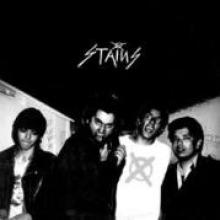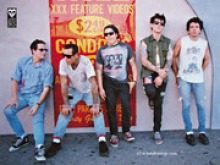TWOFER: the Riverboat Gambles x the Knotwells
Blood River Melodies
(Self Released, 2005)
When I went to Record Revolution in Cleveland Heights to trade this cd in and in turn get Cannonball Adderly’s Mercy, Mercy, Mercy, I described The Knotwells to the gentleman behind the counter as musically superior to The Dropkick Murphys or Flogging Molly axis of punk, but not as good at writing songs. And that’s pretty fair. Even as the Knotwells champions its country roots over the Irish ones, the later is more readily apparent musically. Now, I’ve been accused of being a snob and I can’t say that that claim is unwarranted, but I do like my fair share of dumb punk. This however, is just not all that imaginative. Each track begins with a more than promising hillbilly style musical intro. Unfortunately, the singer eventually takes over and its kinda downhill after that. There’re no instrumentals on this album, but the band would benefit from a few, if that’s any indication of their front man’s ability to croon. The song writing, much like the singing, seems like a little something is lacking. A chorus gives us the proof in the couplet, “I wrote you a little song/and this is how it goes.” Really, there aren’t any total losers, but each track sounds pretty much like the last and the singer managers to slip in a “hep” or a “hey” during every song. If these guys stuck to country music, muzzled the singer and toured wearing matching cowboy hats, you might hear from ‘em again. Otherwise, don’t count on it. Really.
Riverboat Gamblers
To the Confusion of Our Enemies
(Volcom Entertainment, 2006)
Before I ever saw Napoleon Dynamite, I heard too many glowing endorsements for the film to bear any sort of resemblance to the rants I had been witness too. It wasn’t a complete bummer, but it wasn’t quite magnificent. In pretty much similar fashion, I’ve become familiar with the Riverboat Gamblers. Upon receiving this fine disc in the mail, I dreamt of stacking it next to The Reatards and Rocket From the Tombs in my alphabetical secret stash of slabs. But, this compact disc will not ever make its way into such esteemed company. Now, I will not diminish the accomplishments of this band, although I could. Either way, they have toured the nation, released numerous records, established their name and have been paid copious amounts of money by Volcom. Shocking. The result of that is an entire record, comprising 14 songs, of almost radio ready punk. There is of course nothing to be ashamed of if in-fact your punk band trucks in that kinda music. But I simply wasn’t ready for this strain of punk. The band surely sounds tough, but with a pop sensibility tossed in that occasionally calls to mind Weezer, if they weren’t hopeless dorks, but talented ones nonetheless. That being said, this album, without question exceeds the expectations of anything that could make it to radio, or at-least title music for MTV2. It probably deserves a pass, but I’m not feeling to generous.

